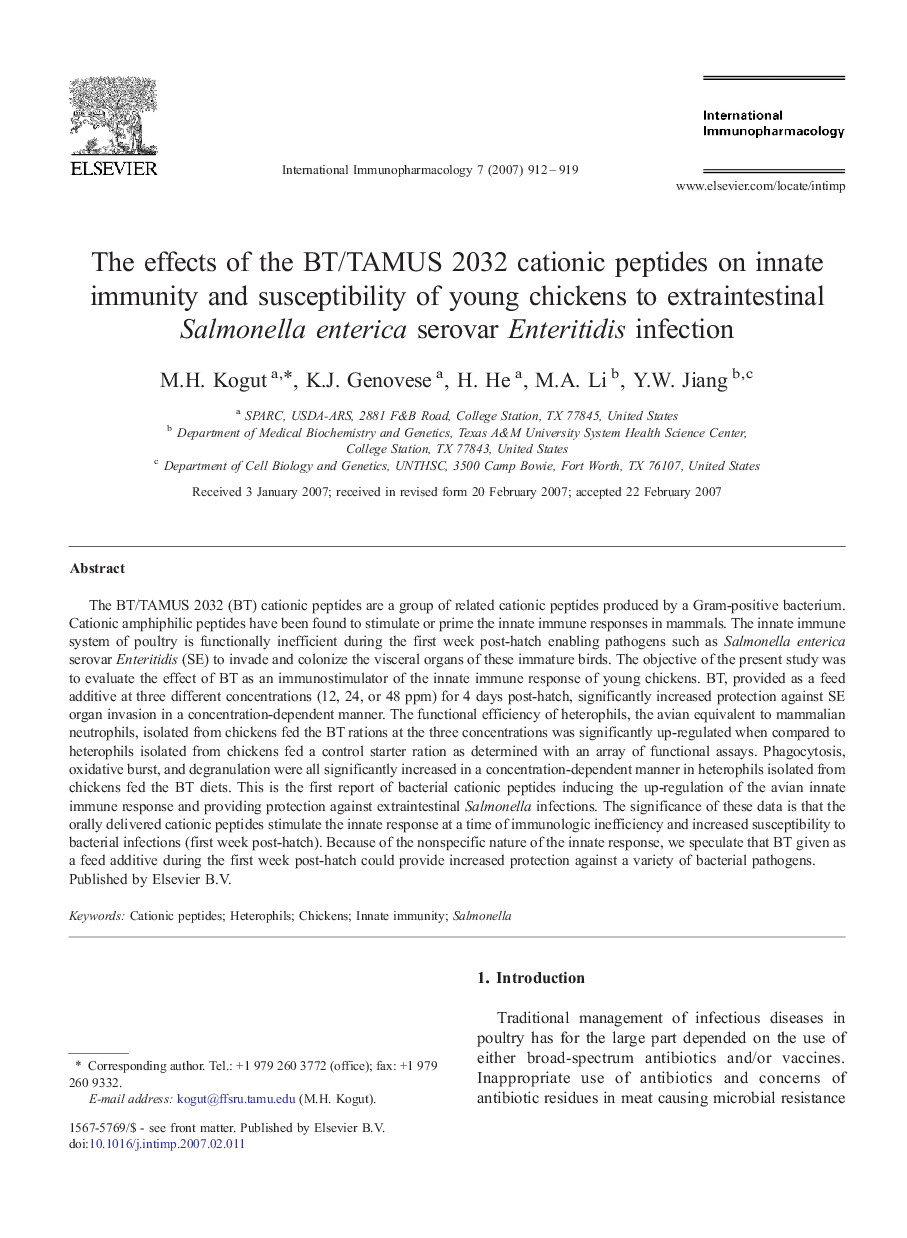| کد مقاله | کد نشریه | سال انتشار | مقاله انگلیسی | نسخه تمام متن |
|---|---|---|---|---|
| 2542105 | 1122688 | 2007 | 8 صفحه PDF | دانلود رایگان |

The BT/TAMUS 2032 (BT) cationic peptides are a group of related cationic peptides produced by a Gram-positive bacterium. Cationic amphiphilic peptides have been found to stimulate or prime the innate immune responses in mammals. The innate immune system of poultry is functionally inefficient during the first week post-hatch enabling pathogens such as Salmonella enterica serovar Enteritidis (SE) to invade and colonize the visceral organs of these immature birds. The objective of the present study was to evaluate the effect of BT as an immunostimulator of the innate immune response of young chickens. BT, provided as a feed additive at three different concentrations (12, 24, or 48 ppm) for 4 days post-hatch, significantly increased protection against SE organ invasion in a concentration-dependent manner. The functional efficiency of heterophils, the avian equivalent to mammalian neutrophils, isolated from chickens fed the BT rations at the three concentrations was significantly up-regulated when compared to heterophils isolated from chickens fed a control starter ration as determined with an array of functional assays. Phagocytosis, oxidative burst, and degranulation were all significantly increased in a concentration-dependent manner in heterophils isolated from chickens fed the BT diets. This is the first report of bacterial cationic peptides inducing the up-regulation of the avian innate immune response and providing protection against extraintestinal Salmonella infections. The significance of these data is that the orally delivered cationic peptides stimulate the innate response at a time of immunologic inefficiency and increased susceptibility to bacterial infections (first week post-hatch). Because of the nonspecific nature of the innate response, we speculate that BT given as a feed additive during the first week post-hatch could provide increased protection against a variety of bacterial pathogens.
Journal: International Immunopharmacology - Volume 7, Issue 7, July 2007, Pages 912–919